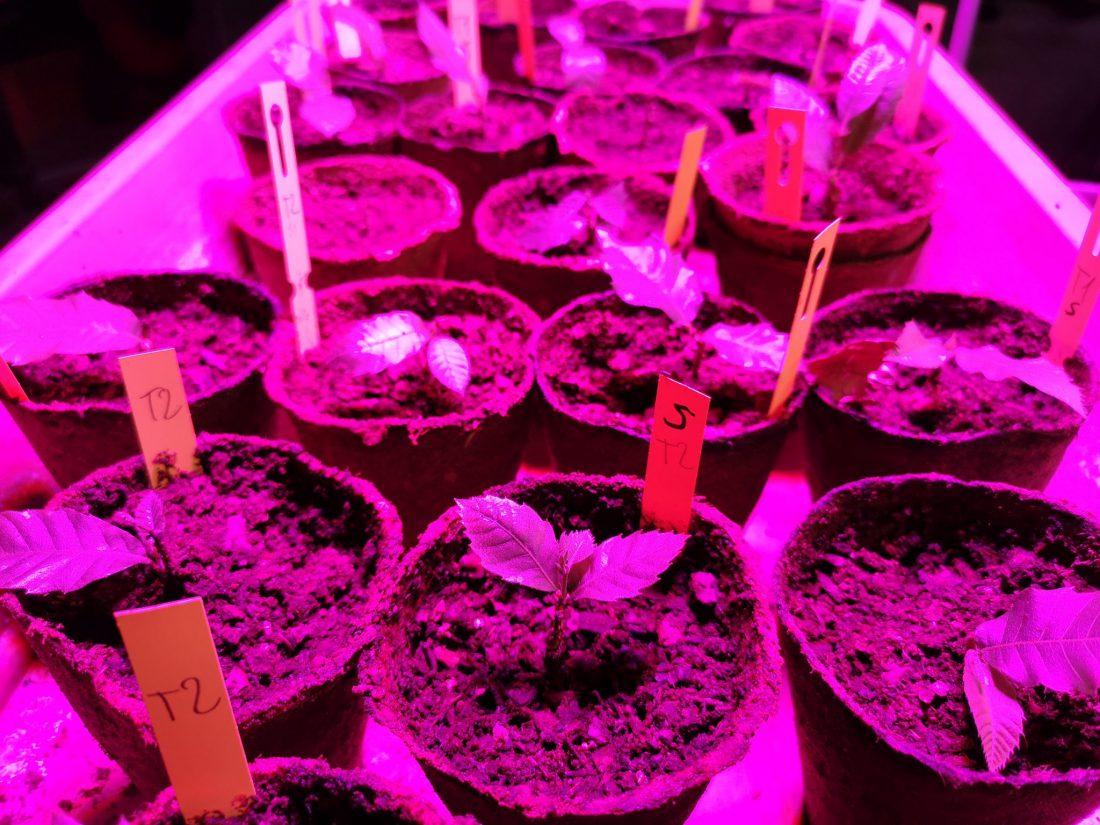
Clonal rootstocks and nursery
The research activities carried out by the Chestnut R&D Center are aimed at selecting and evaluating the agronomic performances of new clonal rootstocks, that represent the new frontier in intensive chestnut cultivation. The main studied features of clonal rootstocks are the compatibility with C. sativa cultivars, as well as the resistance or tolerance to Phytophthora spp. and Cryphonectria parasitica.
The Center developed two innovative propagation methods for clonal rootstocks, C-roots and C-box, that proved to be effective on chestnut.
The research on clonal rootstocks involves the study of phenolic compounds and their role in compatibility: indeed, they play an important role in the graft-union formation during the callusing stage, where an intense production and subsequent accumulation of these secondary metabolites occurs. This accumulation in the wound tissues may cause marked effects on growth and metabolism of the shoots. Therefore, research activities aim at investigating the differences in polyphenolic content in Castanea spp. scion and rootstock tissues and understanding if they can be used as chemical markers as early detection of graft compatibility, as already done on other fruit species.




